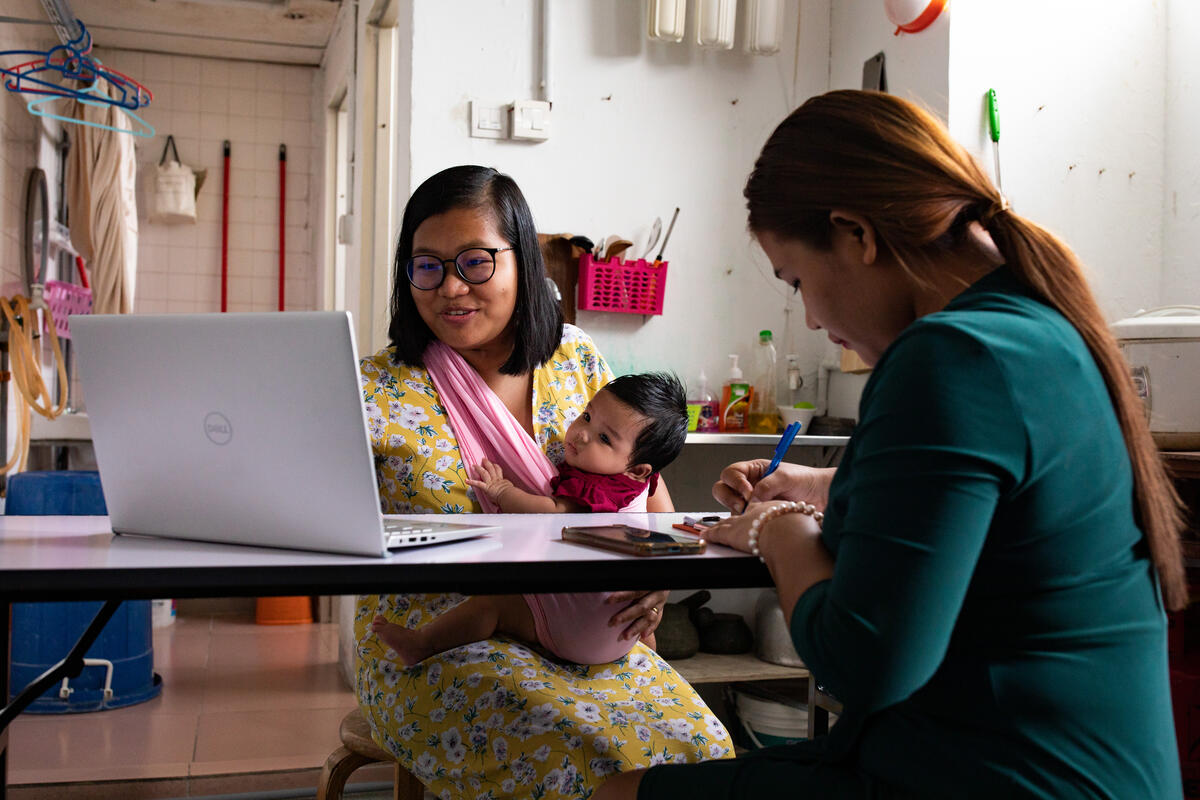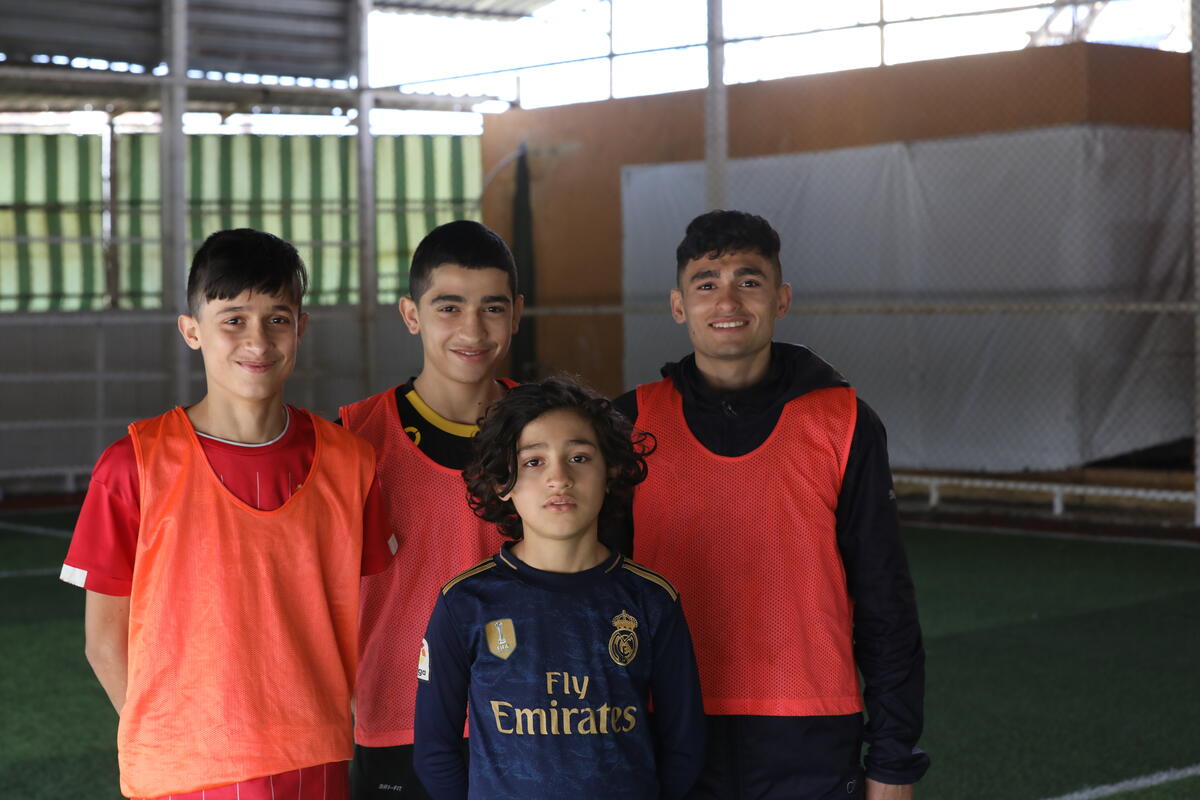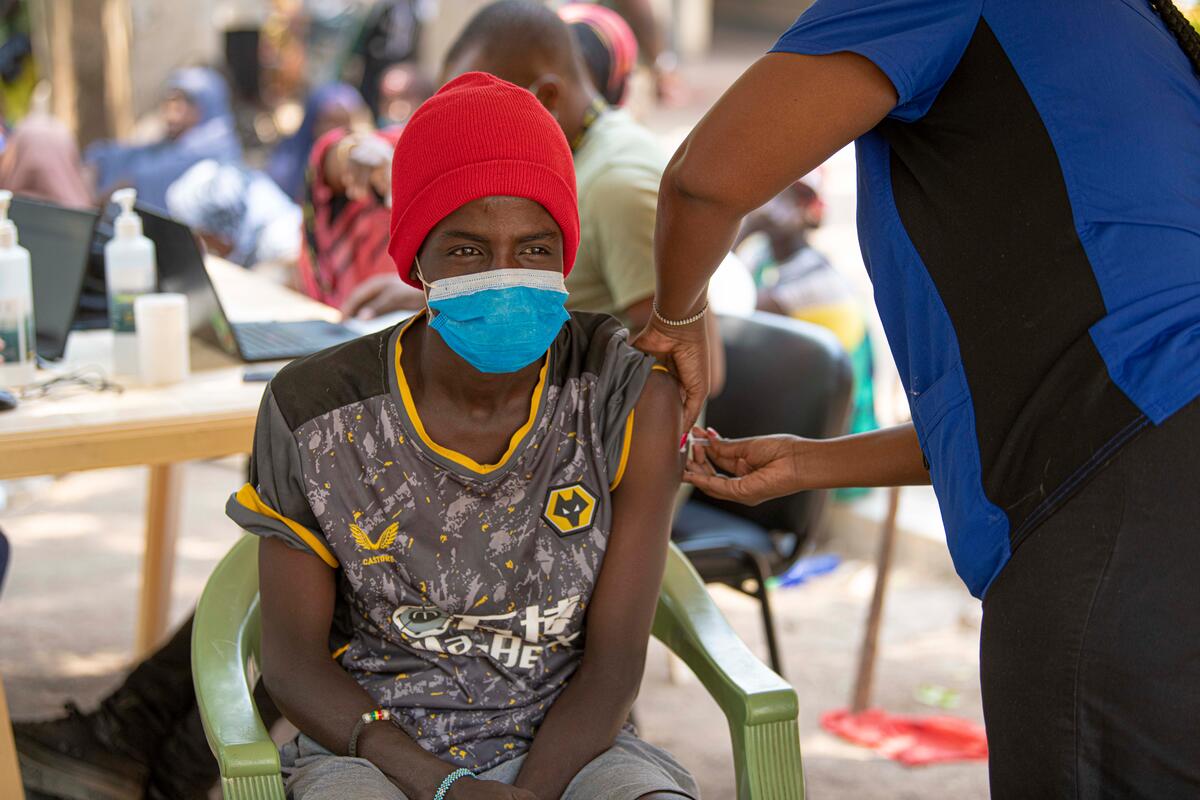Hepatitis E toll rises to more than 100 in South Sudan refugee camps
Hepatitis E toll rises to more than 100 in South Sudan refugee camps
In South Sudan UNHCR is seeing a large number of Hepatitis E cases in refugee camps near the border with Sudan. Hepatitis E is in endemic in the region, but among refugees has contaminated 6,017 people and led to 111 deaths since July, according to figures compiled by UNHCR, the South Sudanese government, and the World Health Organization (WHO).
The largest number of cases and suspected cases is in the Yusuf Batil camp in Upper Nile State, which accounts for 3,937 cases, or almost 70 percent of the total, and 77 deaths. The camp currently holds 37,229 refugees.
Jamam Camp, also in Upper Nile State, has recorded 1,320 cases and 25 deaths, followed by the Gendrassa Camp with 577 cases and three deaths. In Doro Camp 58 cases have been recorded thus far, including two deaths.
Further west, in Unity State, the situation is less dramatic. 125 cases or suspected cases and four deaths have been recorded at the Yida site, which with a population of 65,541 people holds the largest concentration of refugees in South Sudan.
The majority of refugees in camps where the disease is most widespread are from Blue Nile State, an isolated rural area in Sudan where there are few established toilet facilities and uncontaminated water is not readily available. UNHCR believes the growth in the population due to the refugee influx from Blue Nile could be one of the factors in the rapid spread of the disease.
While there is no treatment or WHO approved vaccine for Hepatitis E, the risk of being infected can be dramatically reduced by washing hands with soap, especially after using the toilet, drinking clean water, using latrines, and avoiding eating uncooked fruits and vegetables. Hepatitis E is a virus that damages the liver, and is transmitted by consuming contaminated food or water.
Emergency measures are being taken to curb the increase, with about 70 percent of the 701 latrines under construction in Yusuf Batil completed and the remainder expected to be operating by this weekend. In the Doro Camp region, 65 per cent of the 323 latrines being built in the most affected areas around the Jumjum and Ingasana villages have been completed thus far.
Other steps being taken include additional soap distribution at Yusuf Batil comprising 168,000 bars, more than doubling the monthly rate of 250 grams per month per person. Further soap distributions, especially for washing hands, will continue to be carried out.
Plans are under way to replace about 22,000 10-liter capacity jerry cans - household water containers which can become a source of infection if filled with contaminated water. An additional 5,000 buckets are also being shipped to Yusuf Batil and a supplemental borehole is currently being drilled.
Additional measures include enhanced disease surveillance, water chlorination, and an intensive health and hygiene promotion campaign in markets, schools, and at the household level.
In South Sudan, there are currently 112,981 Sudanese refugees in Upper Nile State, and 67,233 in Unity State.
For further information on this topic, please contact:
- In Nairobi (Regional), Kitty McKinsey on mobile +254 735 337 608
- In Juba, Eduardo Cue on mobile + 211 920 001 048
- In Geneva, Fatoumata Lejeune-Kaba on mobile +41 79 249 3483








